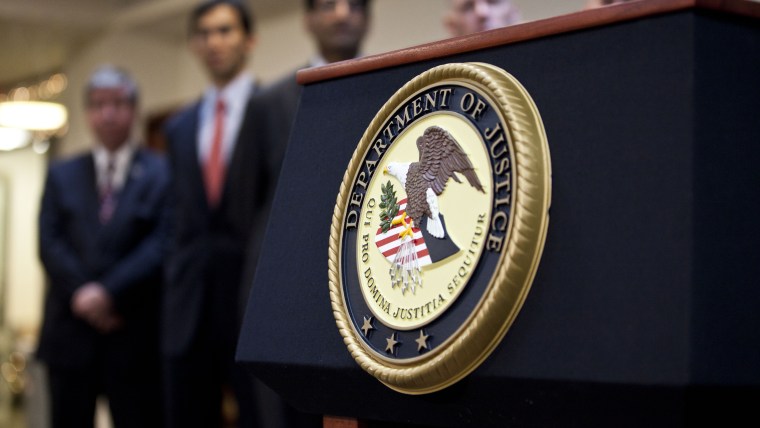The first thing to remember about the "Nunes memo" is that it's not really a memo, per se. House Intelligence Committee Chairman Devin Nunes (R-Calif.), who's embarrassed himself more than once as a Donald Trump toady, has apparently prepared a document intended to discredit the investigation into the Trump/Russia scandal.
And while the report, for lack of a better word, includes classified information, it's not a secret summary of intelligence officials' findings that the congressman is trying to bring to the public. On the contrary, the "Nunes memo" was prepared by Nunes and his committee staffers as part of a partisan exercise, intended to shift attention away from the White House by pointing the finger at the Justice Department, the FBI, Fusion GPS, and intelligence professionals.
By multiple accounts, Nunes' document is less a memo and more a collection of talking points written to advance one of the House Intelligence Committee chairman's top priorities: protecting the president.
The future of the report is unclear. Some congressional Republicans agree that its release could compromise FBI sources and methods, and would therefore be "dangerous." The Justice Department, which has been denied the opportunity to review the so-called memo, believes the release of the document could prove "extraordinarily reckless."
In a letter to Nunes last week, Stephen Boyd, a Trump-appointed assistant attorney general and former Senate aide to Jeff Sessions, wrote, "We do not understand why the committee would possibly seek to disclose classified and law enforcement sensitive information without first consulting with the relevant members of the intelligence community."
And then there's the intended beneficiary of the ham-fisted endeavor: the Washington Post reported over the weekend that Donald Trump is siding with his Capitol Hill allies over the Justice Department:
On Wednesday, as Republicans were clamoring to make public a secret document they think will undercut the investigation into Russian meddling, President Trump made clear his desire: Release the memo. [...]... White House Chief of Staff John F. Kelly relayed the president's view to Attorney General Jeff Sessions -- although the decision to release the document ultimately lies with Congress.
Why the White House chief of staff conveyed the message to Sessions, who recused himself from the investigation into the scandal, is not yet clear.
Of particular interest, the report added that Trump believes Nunes' document could help provide him with the political cover he needs to fire his perceived enemies in the Justice Department, including Deputy Attorney General Rod Rosenstein. The president has told people in his orbit "that the memo is starting to make people realize how the FBI and the Mueller probe are biased against him."
The Post's report went on to say that Trump, "appearing frustrated and at times angry," has complained in recent weeks "that he does not understand why he cannot simply give orders to 'my guys' at what he sometimes calls the 'Trump Justice Department.'"
If that sentiment sounds familiar, it's because it's become a staple of this president's approach to federal law enforcement. In early November, Trump conceded that he was "very frustrated" by the fact that he's not supposed to direct the Justice Department's actions. Last month, Trump went a bit further, declaring, "I have absolute right to do what I want to do with the Justice Department."
Now he reportedly has no idea why he can't have his "guys" at the DOJ follow his demands -- as if the Justice Department were somehow staffed by lawyers he keeps on retainer.
I'm not prepared to guess what will happen with the "Nunes memo," but these developments serve as an unsettling reminder that when it comes to Trump's assaults on democratic institutions, his approach to federal law enforcement is among the most radical.
The Post's piece added that Trump is "accustomed to functioning as the executive of a private family business who does not seem to understand that his subordinates have sworn an oath to the Constitution rather than to him."
With this in mind, it's likely a question of when, not if, the president's next attempted abuse will unfold.
